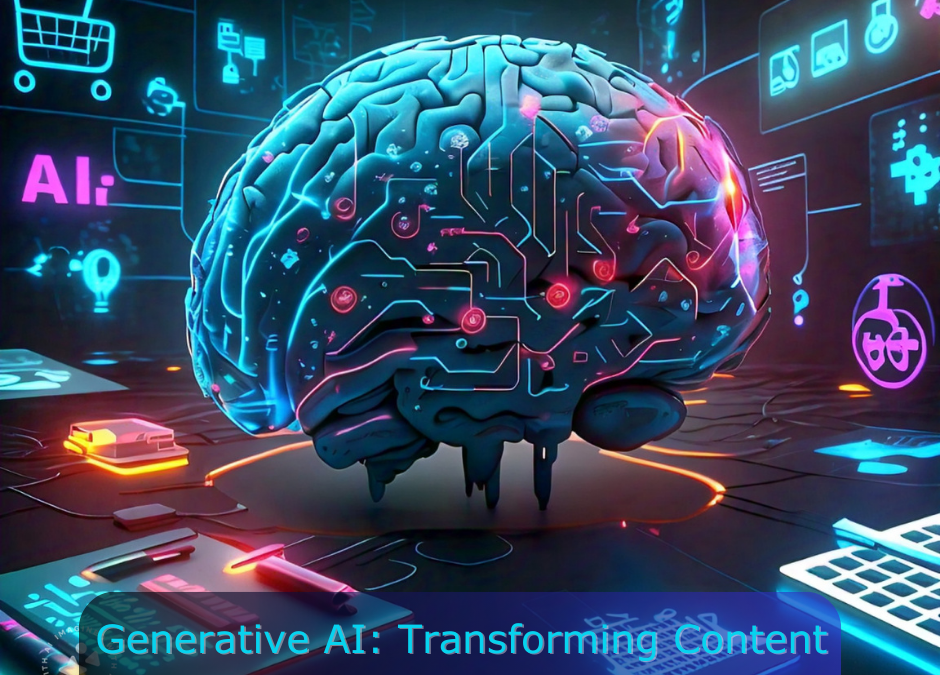AI in Knowledge Discovery: Increased Use of AI for Natural Language Question Answering and Conversational Search to Support Self-Service Knowledge Discovery
In an era where information flows abundantly, self-service knowledge discovery has become essential for users seeking quick and accurate answers without needing human assistance. From customer service inquiries to research and technical support, people expect real-time solutions they can access independently.
With advances in artificial intelligence, particularly in natural language question answering and conversational search, self-service knowledge discovery is evolving into a highly interactive, accessible, and efficient process. This article examines how AI drives these advancements, the technologies involved, and the benefits and challenges of AI-driven knowledge discovery.
The Need for Self-Service Knowledge Discovery
The demand for immediate access to information is more significant than ever, with users expecting to find answers quickly and intuitively. Whether it’s a customer troubleshooting a product issue, a student searching for academic resources, or a business analyst seeking insights, users want autonomy and efficiency in their knowledge-seeking journey. Industries like customer support, education, healthcare, and business intelligence increasingly rely on self-service knowledge discovery to meet these demands. AI-based question-answering and conversational search streamline this process, making it easier for users to locate the information they need independently.
AI Technologies Driving Knowledge Discovery
Several AI technologies are central to the capabilities of modern knowledge discovery systems:
- Natural Language Processing (NLP): NLP is fundamental to enabling machines to understand and respond to human language in a way that feels natural and intuitive. By interpreting the nuances of language—such as syntax, semantics, and sentiment—NLP allows AI systems to respond accurately to user inquiries and deliver relevant information.
- Machine Learning and Deep Learning: These technologies allow AI systems to learn from data and continually improve their performance. With each interaction, machine learning models become more accurate, refining their ability to interpret user intent, recognize patterns, and offer personalized responses. Deep learning further enhances this by enabling more sophisticated processing of complex language inputs, making AI’s responses contextually appropriate.
- Knowledge Graphs: Knowledge graphs structure and store data in a way that models relationships between different pieces of information. By connecting related data points, knowledge graphs allow AI systems to provide not just straightforward answers but also contextual, in-depth insights, making the answers more relevant and useful to users.
Conversational Search and Question Answering
Conversational search represents a significant shift from traditional keyword-based search methods. Unlike traditional searches, which rely on keywords, conversational search involves back-and-forth interactions that allow users to clarify questions and refine answers in real time. This type of search is powered by advanced NLP models, which help AI systems interpret and maintain the context of a conversation, providing responses that feel more natural and human-like.
Question-answering systems, on the other hand, are designed to retrieve specific information from large datasets in response to user queries. With advancements in NLP and machine learning, these systems can now handle complex queries, detect user intent, and deliver precise answers that evolve based on ongoing interaction. Together, conversational search and question-answering offer an intuitive, interactive user experience, making self-service knowledge discovery feel more personal and responsive.
Benefits of AI in Self-Service Knowledge Discovery
The integration of AI into self-service knowledge discovery brings several benefits:
- Improved Accessibility and Speed: AI-driven systems provide quick, efficient responses to user inquiries, enabling people to find information in seconds. This rapid access is especially beneficial in high-demand fields such as customer support and technical troubleshooting.
- Personalization and Contextual Understanding: By analyzing user data and interactions, AI systems offer personalized responses that consider the user’s intent and context, enhancing the relevance of each interaction.
- Cost Savings and User Satisfaction: For organizations, AI reduces the need for extensive human support, lowering operational costs. At the same time, users benefit from faster, more convenient access to information, leading to higher satisfaction and reduced frustration.
Challenges and Considerations
Despite these advantages, AI-driven knowledge discovery faces challenges:
- Data Privacy and Ethics: As AI systems gather user data to improve personalization, organizations must ensure data privacy and ethical standards are upheld. User data must be protected to prevent misuse and maintain trust.
- Maintaining Knowledge Base Accuracy: AI systems rely on up-to-date and accurate knowledge bases. Organizations must regularly update these knowledge bases to avoid outdated or incorrect information, which can negatively impact user trust.
- Technical Limitations in Language Understanding: Although AI has advanced significantly, understanding language nuances, such as idioms or cultural references, remains challenging. Improving AI’s language comprehension requires ongoing innovation and fine-tuning.
Future Trends in AI-Driven Knowledge Discovery
The future of AI-driven knowledge discovery holds promising advancements:
- Multimodal Search Capabilities: Future AI systems may incorporate multimodal search, allowing users to query information through various formats, including text, images, and voice. This integration enhances accessibility and flexibility for users with different preferences.
- Real-Time Knowledge Base Updates: As technology advances, AI systems may continuously update their knowledge bases, ensuring that the information they provide remains accurate and relevant without the need for manual updates.
- Augmented Reality and Virtual Assistants: Emerging technologies like AR and intelligent virtual assistants could further enhance knowledge discovery by providing visual, immersive, and interactive ways to engage with information.
Keep In Mind
AI is transforming self-service knowledge discovery by making it more intuitive, accessible, and effective. Technologies like NLP, machine learning, and conversational search enable users to interact with knowledge systems naturally, while AI-driven question-answering and personalization enhance the user experience. As AI continues to evolve, we can expect even more sophisticated and interactive self-service knowledge discovery solutions, empowering users and helping organizations meet the demand for instant, accurate information.




